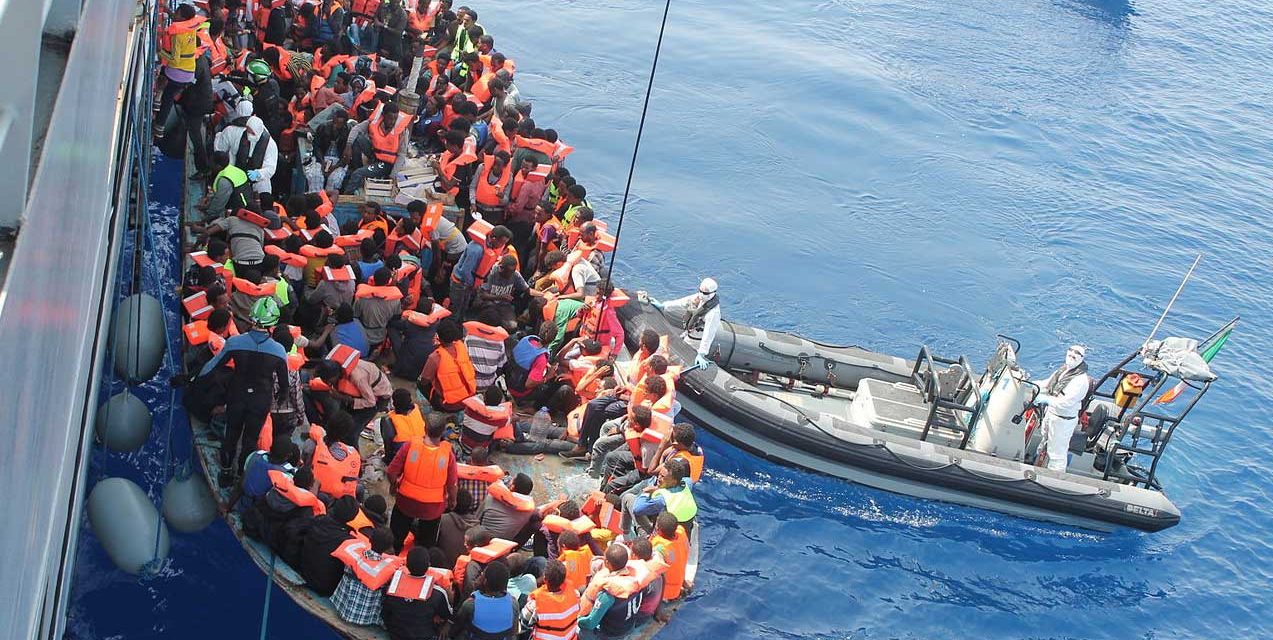We should remember that many of us would not have the life we lead now were it not for our courageous ancestors who made similar voyages.
For most of us, the ocean represents beauty, tranquility, wonder and life. It certainly did for the 4,000 paying passengers on the cruise ship Norwegian Getaway I was with last month. Departing from Miami and smoothly gliding through the blue waters of the Gulf of Mexico towards Central America, many of us ate, drank, slept, shopped and partied until we reached land where there would be more eating, drinking and other forms of excess. It seemed that nothing interrupted our pleasure, at least not until I entered the ship’s buffet restaurant one night. As it was late, the wait staff had started tidying up. They brought out large plastic basins and began to throw in uneaten food. Filets of baked salmon, spears of asparagus, scoops of buttered mashed potatoes with chives, and mounds of fragrant fried rice were all piled high and dumped together as waste.
I could not help but remember that on another ship in another sea beyond the Atlantic there were people suffering and dying. Where instead of being a pleasure the ocean was a peril; where instead of sporting suntans passengers sported untreated open wounds and scars; where instead of having plenty of food and potable water resources were scarce; and where instead of receiving a warm welcome at the destination arrivees faced uncertainty and administrative red-tape. News trickled in, even during our cruise, about the many horrors that thousands of migrants on the Mediterranean Sea endured while the International Organization for Migration (IOM) and the United Nations High Commission for Refugees (UNHCR) scrambled to their aid. It seemed odd and strange that but for the accident of birth any one of us on the cruise could have been one of them. Consequently, we could have been fighting for our lives on a ship instead of smoothly sailing to the next port. We could have paid double or triple the price of a cabin only to be packed into a congested corner on an unseaworthy vessel. And we could have watched as family members fell ill and met their untimely ends instead of relaxing with us and sharing a glass of wine.
Looking around, my cruise mates, mostly American, went about their vacation unconcerned. Understandably, this was their time off. Yet many of them, like a number of us in the U.S., had ancestors who in the last four hundred years fled persecution, left their countries of origin, and migrated to North America by ship across the Atlantic or the Pacific. Moreover many of our ancestors had faced the same perils and uncertainties today’s boat migrants were facing, including arriving at the destination with little or no documentation and hoping vehemently to find a better way of life.
Unfortunately, public opinion in recent years has been mixed towards these migrants due to insurgents who have used this route to spread fear, causing death and destruction in their new countries. Indeed, the comments I have heard from fellow Americans ranged from, “Why can’t these migrants stay in their own countries?” to “The U.S. should be doing more.”
Given our country’s multi-cultural history and its reputation as the “melting pot”, we should refrain from making a judgment about these refugees too quickly, too harshly, or too precipitously. Very few of us can ever relate to what these boat migrants have experienced and are still experiencing. We cannot begin to conceive what it is like to leave everything we know and own behind—family, friends, and property—to embark on a dangerous journey to a strange place with no guarantees and where one does not even speak or read the local language. More importantly we should remember that many of us would not have the life we lead now were it not for our courageous ancestors who made similar voyages.
And as history has a tendency to repeat itself perhaps one day, a generation or two later, on another ship in another sea the descendants of today’s boat migrants will be on a cruise eating, drinking and enjoying the bountiful, viewing the ocean once more as a place of beauty, tranquility, wonder and life.







